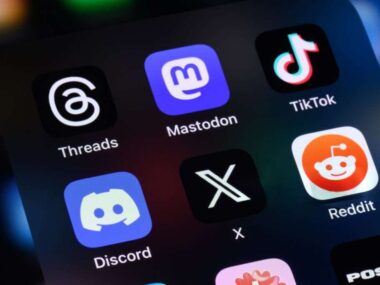Itch.io is searching for new payment processors after being forced to deindex thousands of adult games. The deeper issue isn’t about content. It’s about power. A handful of companies now control who gets paid online, and creators are paying the price.
The Real Reason Itch Deindexed NSFW Games
When Itch.io removed adult games from search and browsing, many thought they were cracking down on creators. This wasn’t a choice. It was a response to pressure from payment processors after a campaign by the Australian advocacy group Collective Shout. The group targeted both Steam and Itch over a specific banned game, then pushed companies like Stripe and PayPal to stop supporting any platforms that sell similar content.
Itch is an open platform. With over two million product pages, it didn’t have the luxury of quietly pulling a few titles. Steam approves each game one by one. Itch doesn’t. The only option was to deindex everything marked NSFW while they audit the site.
This wasn’t censorship. It was survival.
Deindexed Doesn’t Mean Deleted
To be clear, the adult content is still on Itch. If you bought a game before the deindexing, it should still be in your library. It just won’t show up in search or categories, and it’s temporarily not available to new buyers unless you have a direct link.
While the content remains, the damage is already being felt. Creators report lost traffic. Sales are down. Many are confused and frustrated. All of this happened because a non-governmental group in another country pressured payment processors. Those processors made a decision that affects users globally.
Who Really Benefits From This?
Let’s not pretend this is about protecting people. If the goal was to remove this content from the internet, that’s not happening. It’s still there, just harder to access and more expensive to process. If Itch can work with different processors, that is where developers who make NSFW content will go. This could boost their inventory of games.
What changed is who profits. By classifying adult content as “high-risk,” payment processors can now charge more, sometimes 5–15% per transaction, to handle adult content. This affects Itch.io, the developers, and in some cases, the consumers.
So who wins? The processors do. They get to hike up fees while pretending they’re taking a moral stand.
What Happens Next: Higher Costs, Stricter Rules
Right now, Itch is exploring new partnerships with processors that work with adult content. These companies exist, but they charge more, and they come with stricter requirements.
That means:
- Higher fees (passed on to Itch or the developer)
- Stricter age verification and compliance checks
- Increased risk of permanent bans if a single policy is violated
- Ongoing audits and content moderation, even for creators who’ve done nothing wrong
Itch is also updating its policies to match payment processor expectations. That includes banning certain fetishes and non-criminal themes that processors have labeled objectionable.
This isn’t about legality. It’s about optics. Creators are now on the hook for standards set by companies they never agreed to work with.
Why This Is a Warning for All Adult Creators
This entire situation is a cautionary tale. You can follow the law. You can build an audience. You can work with a platform that respects you.
And still lose everything, because a third-party company decided your content was too risky to monetize.
The lesson here isn’t just that adult content is under scrutiny. It’s that payment processors have become de facto gatekeepers of online creativity. They can, and do, cut off income streams without warning. In many cases, they answer to public pressure rather than laws or due process.
What’s happening on Itch.io isn’t just a platform problem. It’s a structural problem. When a few financial companies can quietly reshape entire marketplaces by threatening to cut off payments, we’re no longer talking about content moderation. We’re talking about control.
Creators are now forced to navigate a landscape where breaking no laws and violating no terms of service still isn’t enough to protect their income. Unless something changes, this won’t stop with adult content.
It’s not about what people are allowed to create.
It’s about what they’re allowed to sell and who gets to decide.






